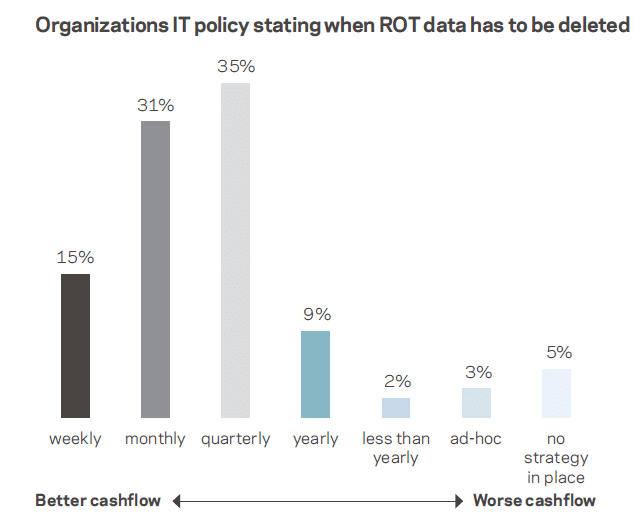![]() Veritas has released their US Databerg Report, which looks at the effects of today’s exploding data volumes and how they have been overlooked by most business leaders who were did not anticipate the exponential growth of data. In fact, an independent research study demonstrates how organizations around the world are on track to waste more than $3.3tn by 2020. Previously, Veritas released their study results on data management, which touches on this subject.
Veritas has released their US Databerg Report, which looks at the effects of today’s exploding data volumes and how they have been overlooked by most business leaders who were did not anticipate the exponential growth of data. In fact, an independent research study demonstrates how organizations around the world are on track to waste more than $3.3tn by 2020. Previously, Veritas released their study results on data management, which touches on this subject.
Veritas has released their US Databerg Report, which looks at the effects of today’s exploding data volumes and how they have been overlooked by most business leaders who were did not anticipate the exponential growth of data. In fact, an independent research study demonstrates how organizations around the world are on track to waste more than $3.3tn by 2020. Previously, Veritas released their study results on data management, which touches on this subject.

In the report, Veritas indicates that businesses should keep a close eye on the rapidly growing data deluge (that is, the huge influx of data), adding that many businesses already do not anticipate the contstant growth of data. As such, there are important consequences for those who ignore the growing Databerg, which can be broken down into three three categories:
- Business Critical data – This is data identified as vital to the ongoing operational success of organizations.
- Redundant, Obsolete and Trivial (ROT) data – This is data identified as redundant, or duplicate, data, and no longer has business value. Veritas indicates that businesses need to proactively minimize ROT data by securely deleting it on a regular basis.
- Dark Data – This is data whose value has not yet been identified; it may include either vital Business Critical or ROT data. Businesses need to explore and assign a value to it. Vertitas claims that a whopping 54% of company data is in this category.
Vertitas says that everyday attitudes to data, as well as behavior at the strategic, organizational and employee levels, are the main causes of the significant amount of Dark Data and ROT:
- Strategic: IT strategies and budgets based solely on data volumes, not business value
- Organizational: A rapid adoption of cloud applications and storage under a false ‘storage is free’ premise
- Individual: Employees believing corporate IT resources are free to use, both for business and personal use
To help solve these issues and change the way businesses think about data, Veritas indicates that the first step is to have an IT policy stating that ROT data must be eliminated. In addition, data should be classified based on the organization’s data retention policy and not just sensitivity, project or type. Veritas also states that a workable information governance journey for Dark Data must be implemented; more and more employees are using company data for their own person use, which needs to be addressed by implementing procedures and gradually improving employees’ behavior.
Ultimately, organizations must gain visibility, take action and assume control in order to deal with the growth in data volume.
Sign up for the StorageReview newsletter

